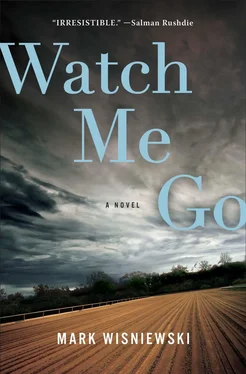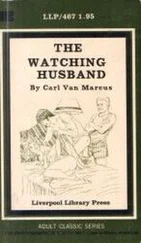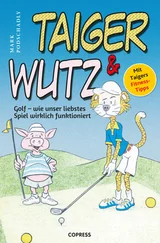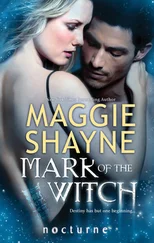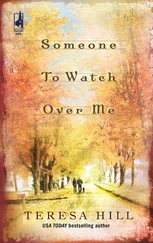And on some days, the bright ones, I’d begin my time outdoors by sitting on the pier to read as well, though I’d sit only halfway toward the deep end, facing the tangled weeds, where we’d often cast the float. If Tug had left the So You Want book on the pier, I might give a sentence or two of it a try, but mostly I’d read one of the dozens of old Racing Form s I’d pilfered from Tom Corcoran’s sacred stack beside the living room couch. I’d study the charts rather than what most gamblers read — past performances — and when Tug finally conjured the nerve, on an unseasonably hot day I endured in only flip-flops and shorts and a lavender bikini top, to ask why I preferred the charts, I said, “Because my daddy did.”
Once, when we found ourselves both looking up from our reading at the same time, Tug was all set to ask if I’d learned a priceless nugget from those charts, some key to wisdom or gambling success, but I beat him to speaking up by saying, “Tug, you got me all confused.”
“How’s that,” he said.
“I thought you were a… horse farmer.”
“I am. I mean, I was.”
I pushed a frizzed strand of hair away from an eye. “And?”
“And as you might have gathered, my farm isn’t quite operating at full capacity.”
I came close to smiling. I nodded and said, “I did gather that.”
“So…” He pointed at his copy of So You Want to Practice Law .
“So… what .”
“So when money isn’t flowing toward you at all, there’s — reality to consider.”
I perused the shallows for the float, which now sat deeper than the sun-bleached weeds.
“Fuck reality,” I said. “You know?”
I studied his face, critically, he thought. Then I continued reading, and he did, too.
Or tried to.
“We’re young , Tug,” I called out, without looking up. “There is no reality. At least none that lasts very long.”
And then I gave him a genuine smile.
“So you’re suggesting,” he said, “that I just… hang in there.”
Again, I returned to my reading.
“I’m saying I want to be a jock,” I said, “and I don’t hear anyone telling me to do anything otherwise.”
Because you’re Jamie Price’s daughter, he thought. But he didn’t dare say that then.
“So why should you give up?” I asked.
And then there I was, grinning even as I faced my charts, but then I looked up and over at him seriously, and he shrugged, and, in a manner that I’d later learn struck him as aggressively flirtatious, I shrugged, too, mockingly, a coy smile on me now, aimed at him.
JAMES IS STILL BESIDE THE FINISH LINE,pointing but not yelling. Bark, with his arms at his sides, leans back against his bench. Then both of them are walking toward me, as if I’m in charge.
“Well?” Bark asks James.
“I couldn’t tell,” James says. “They were all bunched together.”
Bark shrugs, his eyes aimed at the odds board, on the three boxes beside WIN, PLACE, and SHOW. A lit-up ten is in the WIN box, the other two boxes unlit.
“We were right to key them with every other horse,” Bark says. “ Nobody would have guessed the ten.”
“Which means a big payoff?” I ask.
Bark nods. “If we win.”
Then, in the PLACE box, I see the lit-up number one. “Here we go,” James says, and the whole board goes dark, blinks twice, then lights up. The ten is still up over the one, the SHOW box still empty.
“The three was toward the front,” I say. “Wasn’t it?”
“It was when they passed me,” Bark says. “And it was supposed to stay up there.”
He won’t look at James, so I do.
“Well, James?” I say. “Did the three hold on?”
“It might have,” he says. “But I’m telling you, man — from where I was standing, I really couldn’t see.”
“Sonofabitch,” Bark says, and I look at the board, where a clear-as-dawn number is now in the SHOW box:
3.
“It’s not official,” Bark says. “And when it is, pretend it isn’t. The last thing we need is someone following us out to the parking lot.”
“Let’s get in line,” I say. “Let’s get our cash and get out of here.”
“Just chill,” Bark says, but then he’s heading back under the grandstand, and James and I jog to catch up.
“The three held on,” James says, and he clamps my shoulder like he did the first time we won state, but hoop and all those wins back then hit me now as pretty damned small. Because this win now, with its promise of the kind of cash a guy could really throw around, has me wishing I could get back with Madalynn.
But I don’t dare mention Madalynn now.
Not around brothers like these.
I say, “You know it, men. And there was no doubt, right? Never any doubt we did it.”
ONE-POUND MUSKIES,I soon learned, were worthless because Jasper wouldn’t pay a cent for anything that weighed under six pounds. Tom Corcoran said Jasper refused such small ones because possessing them could get you fined just as catching them could, but Colleen, in a very hushed conversation with me, said Jasper sold the muskies I caught to pros who’d use them to win fishing contests — and that no pro cared about a fish unless he couldn’t collar its neck with two hands.
Anyhow, Jasper would drive his metallic green ’62 Ford Galaxie down the road behind the Corcorans’ house every morning just after sunup. If I’d caught any muskies the previous day, I’d have hung a red mechanic’s rag on the hedge of milkweed bushes alongside the road to town, and he’d stop. He’d sometimes sit in his Galaxie for a curious while, maybe till the end of some song on his AM dash radio, and finally he’d stroll, kicking dandelions, across the crabgrass.
Sometimes when he’d arrive I’d still be on the summer porch cot, not completely awake, wishing for things like the pride my father must have felt when his mounts won big, and Tug would already be out there on the far end of the pier, watching the sun rise or whatnot, and my first perception of Jasper would be a quiet but strong knock on the roadside screen door. Colleen would usually answer, my mother upstairs praying or reading or still asleep, and I, in only a T-shirt but wrapped in the Corcorans’ quilt, would overhear Tom offer Jasper a coffee, a lemonade, or a Schaefer beer. Jasper would usually say no but he’d sure be obliged for a glass of water, and then, after the plumbing beneath me rattled and shook and squeaked, Jasper would pass the windows that made for the south wall of the porch, bearing down on the lake as he sipped from one of Colleen’s unmatched crystal goblets.
And Tug would have any muskies I’d caught alive in the lake, on his stainless steel stringer near the shore, and Jasper would place the goblet on shale beside the half-dead crab apple tree that had been split by lightning a year earlier and appeared lifeless except for three green shoots near it — the same tree my father slept against on his last morning alive. I’d get all stuck on the fact that, staring me right in the face, was this same crab apple tree, and Tug would nod hello to Jasper, who’d crouch and pull up the stringer, wipe his palms against the worn-shiny thighs of his trousers, slide a finger under a gill of the largest muskie, then lift it. If you were close enough you’d see its teeth and hear Jasper say, “Nine and a half,” or “Eight pounds, ten ounces,” a proclamation that itself suggested his life of watching 1,200-pound horses run had somehow left him with the sensitivity of a post office scale, and I never, for the first part of that summer, doubted him about that, or about anything. Then he’d slide his cash-fattened wallet from his shirt pocket, undo the rubber bands around it, and pay me if I was there or Tug if I wasn’t, Tug himself good as gold for making sure the money would, one way or another, wind up in my mother’s purse.
Читать дальше
